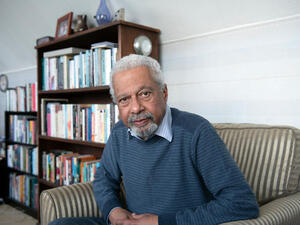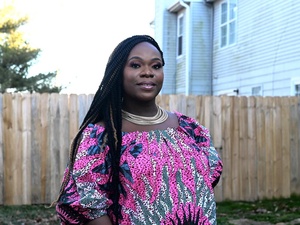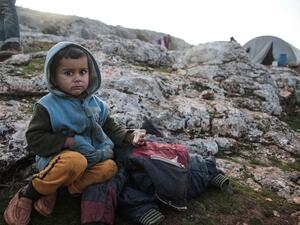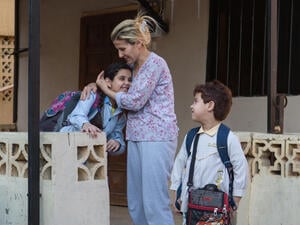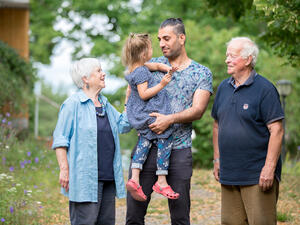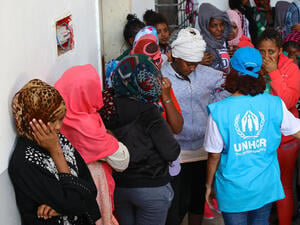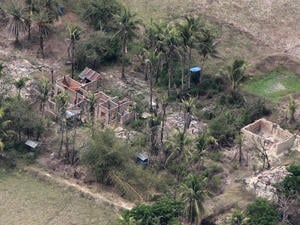UNHCR official urges more attention for Colombia's invisible refugees
UNHCR official urges more attention for Colombia's invisible refugees

UNHCR Assistant High Commissioner for Operations Judy Cheng-Hopkins meets Colombian refugees in Lago Agrio, Ecuador. She called for more attention to be paid to the humanitarian impact of the Colombian conflict on its neighbours.
BOGOTA, Colombia, June 12 (UNHCR) - On a small tour of Latin American countries, UNHCR's Assistant High Commissioner for Operations Judy Cheng-Hopkins has called for more international attention to be paid to the humanitarian impact of the Colombian conflict on the region.
Cheng-Hopkins kicked of her tour on June 6 in Ecuador, where she met top diplomatic and refugee affairs officials and thanked the government for its generosity and flexibility in dealing with the estimated 250,000 Colombians of concern to UNHCR in Ecuador.
She left for Colombia on June 9 and visited UNHCR field offices in the cities of Pasto and Barranquilla at the weekend and was scheduled to meet government officials in Bogota. About half of Colombia's more than two million internally displaced people live in urban centres - many of them in poor suburbs that are little more than shantytowns.
In the Ecuadorean capital Quito, Cheng-Hopkins said last week she shared the government's concerns that the number of people fleeing the conflict in Colombia continues to grow month after month. As Colombians in need of protection in Ecuador, there are also tens of thousands more Colombians of concern to UNHCR in countries such as Venezuela, Panama and Costa Rica.
"Ecuador has been and continues to set a good example in its treatment of refugees and its cooperation with UNHCR," Cheng-Hopkins said, "but I share the government's preoccupation that they are bearing the brunt of what can only be described as an invisible humanitarian tragedy. The international community needs to pay more attention to this problem and to be more supportive of countries like Ecuador, which are receiving so many Colombian refugees."
Last Wednesday and Thursday, the Assistant High Commissioner visited UNHCR's two field offices in Ecuador - Lago Agrio and Ibarra - both located in the north of the country near the Colombian border. She was especially worried about the difficulties of reaching out to a large population of concern scattered over a wide area in difficult and remote terrain.
"People who come here from Colombia don't know they have rights, they don't know about UNHCR - some of them don't even realize the implication of crossing an international border," Cheng-Hopkins said. "They have fled in fear for their life, and many are still scared even in Ecuador, which is why it is so important that we find them and provide them with the protection they need. Our biggest concern is for the women and children, many of whom we have found living in very harsh conditions."
The UNHCR official met one such refugee woman, who fled to the region of Lago Agrio with her four children in December last year to escape death threats in Colombia. Although she still feared for her life, the woman did not know what she could do to protect herself and her family and was unaware she could ask for UNHCR's help. She said she had been on the run for months in Colombia, hiding with her children to escape one of the country's irregular armed groups before crossing into Ecuador.
"I was shocked by her story and by the truly violent nature of the problems that Colombian refugees are fleeing from," Cheng-Hopkins said. "It makes it even harder to understand the world's indifference and increases our responsibility to do all that we can to help bring attention to these invisible refugees."
In Colombia, UNHCR has been working on behalf of the massive IDP population since the late 1990s and its work here constitutes an important model at a time when the agency is taking on the challenge of protecting displaced people in several other countries, such as Uganda, Liberia and the Democratic Republic of the Congo.
The latest UNHCR statistics show that with more than two million internally displaced people, Colombia is now the country with the largest population of concern to UNHCR in the world.
By Marie-Hélène Verney in Bogota, Colombia


